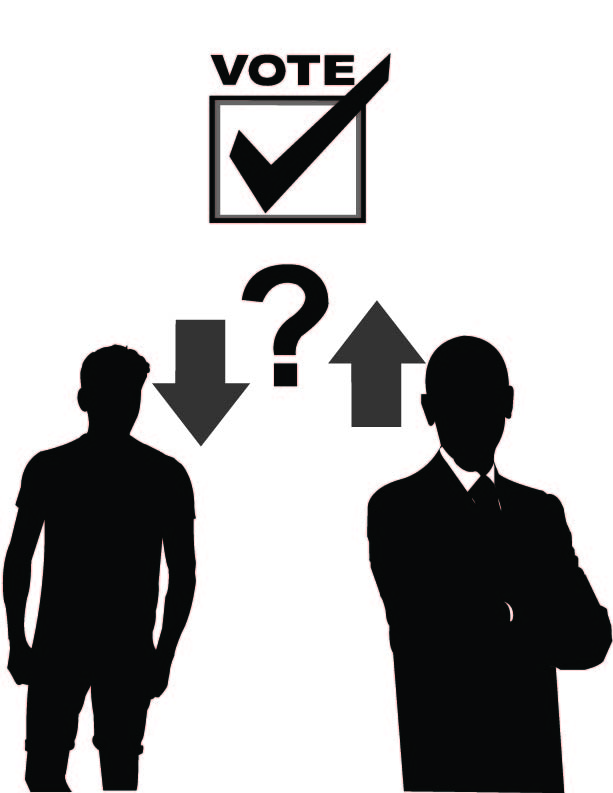Changing the Voting Age
October 14, 2021
So much has happened in the world over the past year and a half, with COVID-19 currently being one of the most popular events in the world with the vast majority of events that were important in 2020-2021. But a political subject that has slowly drifted out of the conversation during this time is voting age. This has been a controversial issue for quite some time now but this topic like many others sort of came to a halt when COVID-19 became the main point on the front page of every news source. Over the years, voting age is something that many people have been working on improvising. Some believe the legal age should be lowered, while others believe it should remain the same or even bumped to older. The current legal voting age in the U.S. is 18 years of age, but some U.S. citizens believe that this is an issue for our current generation.
Most students around Issaquah High School are between the range of 14-18 years old. A lot of those students have their own opinions on the legal voting age and whether a change would be necessary. Senior Nick Hunter says, “The voting age should remain 18 because that is the age where people have finished high school and have earned their diploma. 18 is also an age where people start to figure out from a financial standpoint what they believe politically”. Hunter also went on to explain how he thought a change in voting age might have an effect on U.S. students’ knowledge of civics education; “While I do think teens would have a better grasp on civics with younger voting age, I don’t think we should do that. Teens don’t have enough education to vote for themselves.”
Others think differently. Sophomore Debbie Frisbe (she/her). Debbie believes that a change in lowering the voting age would be beneficial to our future and influence the youth in a better way: “I do think a change would be beneficial, and I would choose 16 as an appropriate age. I think that so much of our legislation will dictate the future of teenagers that it doesn’t make sense to withhold voting privileges until adulthood. Especially in regards to laws that directly affect youth, it makes sense to me that 16 and 17 being added to the range of eligible voters could greatly help to advocate for youth in a way that adult voting doesn’t. I think that if the voting age was lowered, civics wouldn’t be thought of as such a distant prospect. It’s easy for teens to ignore the voting landscape as a whole because ‘it doesn’t affect them’ or ‘they can’t do anything about it’ but by incorporating them into the wider system, their civics education would become exponentially more useful to them and would in turn strengthen.”
Junior Dash Riley says, “I think the voting age should be lowered to 16 because at that age voters are not only mature enough to form their own opinions, but the laws they vote on directly affect them. I think that if 16-year-olds can work, pay taxes, and drive, they should have the option to vote.” Riley then explained how a change in voting age wouldn’t have any other influence on other age laws such as drinking age, driving age etc. He says, “I don’t think a change in voting age would influence changes in drinking age because alcohol harms the body and can directly lead to death or injury. That being said I don’t think voting age would affect a change in drinking age because of the negative impacts alcohol can cause.”
With many different opinions on a very controversial topic, you have to wonder what the beliefs are outside of youth. What do adults believe about this situation? What do professional journalists believe about this issue? From an article written by Vox, Kelsey Piper said, “Around the world, almost every country bars people under 18 from voting. The reasons vary-they won’t be informed enough, they don’t pay taxes yet, they can’t serve in the military yet, they tend to be too liberal, they tend to be rebellious. Yet the rule persists, even though many 16 and 17-year-olds do pay taxes, even in the face of a generation of passionate, smart, and informed teenage activists, and even as it becomes obvious that our current political system is failing our children.”
Another article from NPR written by Emma Bowman also presents the narrative to lower the voting age to 16. Bowman says, “During the 2018 midterm elections, the percentage of 18-to-29-year-old voters jumped to a historic high compared with previous midterms”.
Through research, it has been apparent to me that the vast majority of people ranging from teen years to adult years in the U.S. predominantly prefer a lower voting age to age 16. But there are many out there who believe the voting age should remain the same at 18 for maturity reasons. The last time we saw a change in the voting age was in 1971 where the 26th amendment passed. But considering there are not any National elections until 2024, this topic might not be in effect until then.


